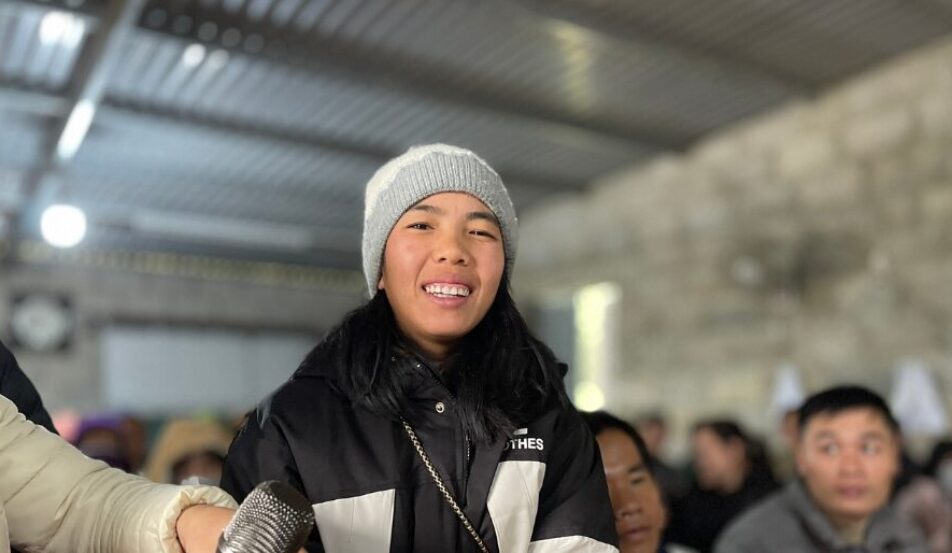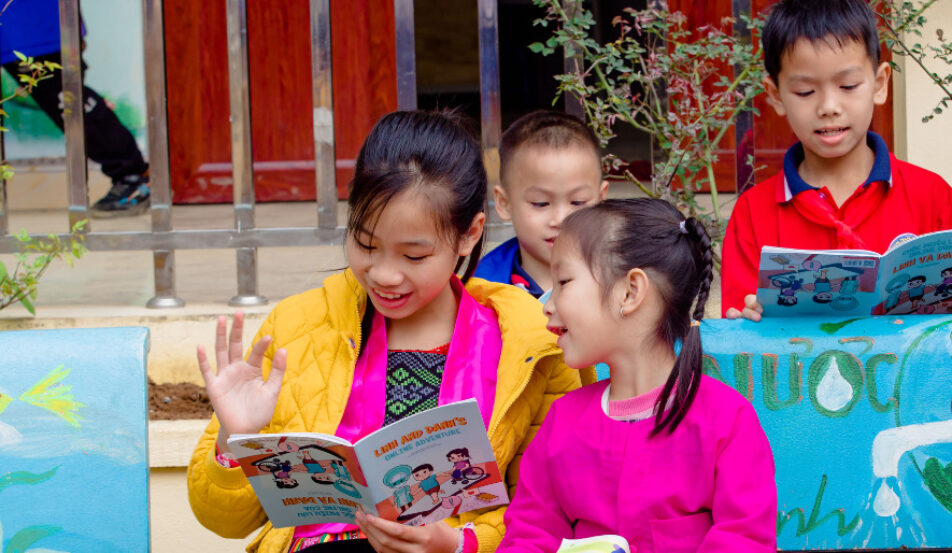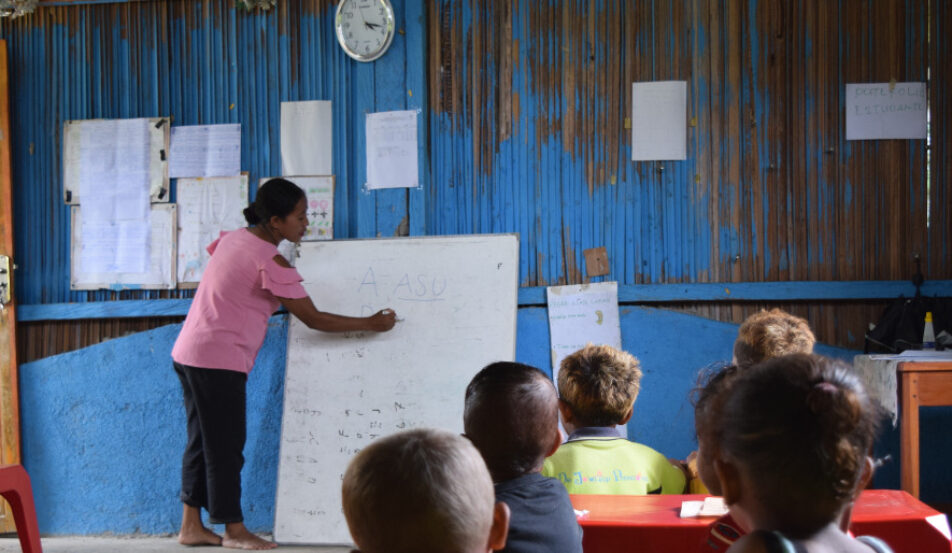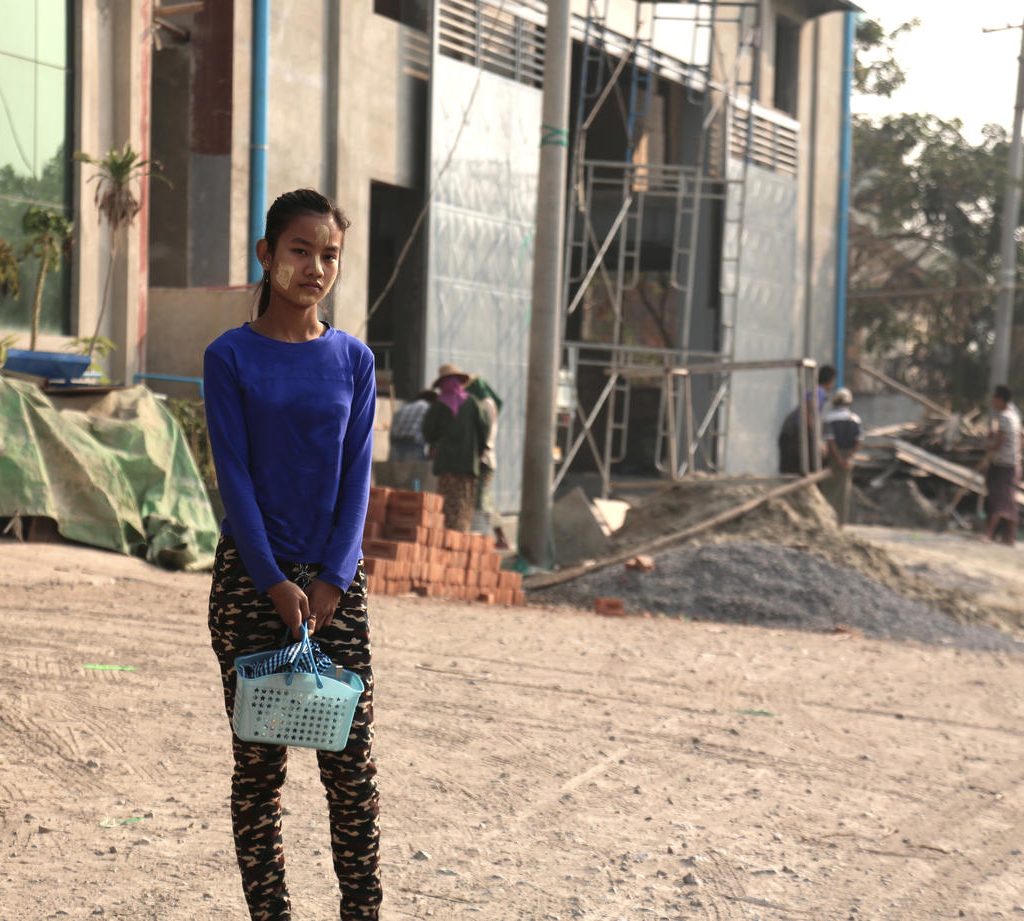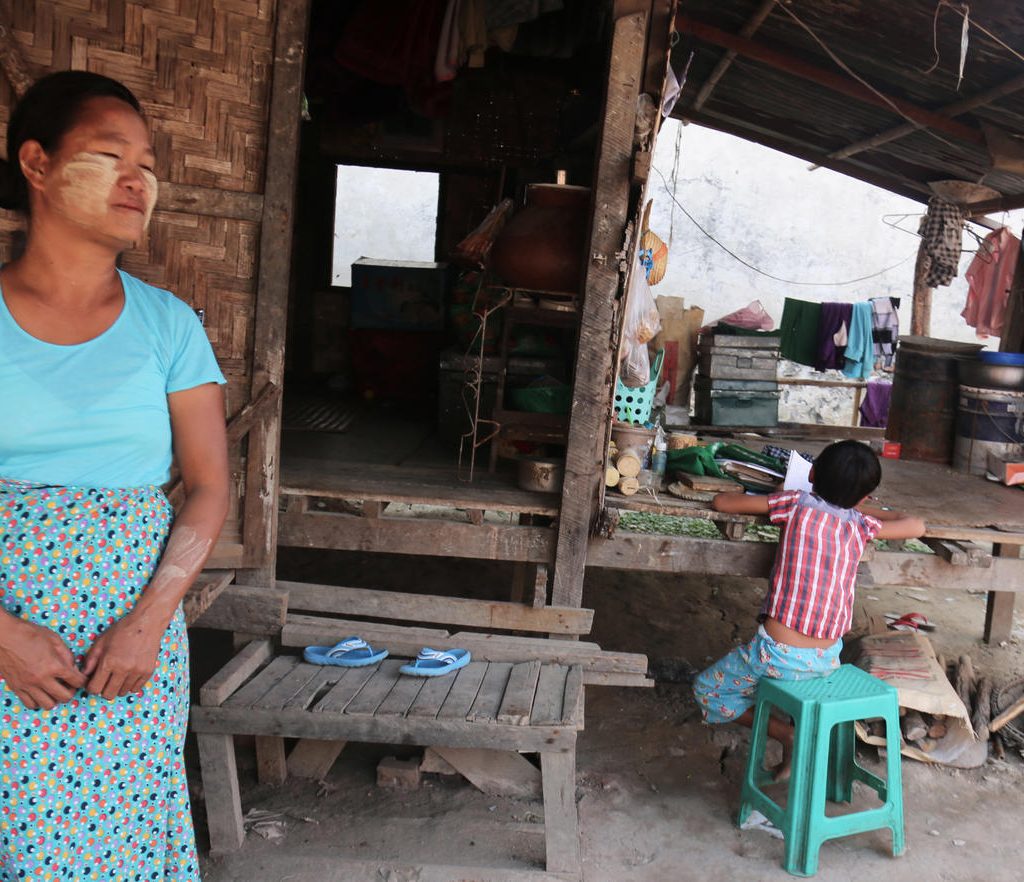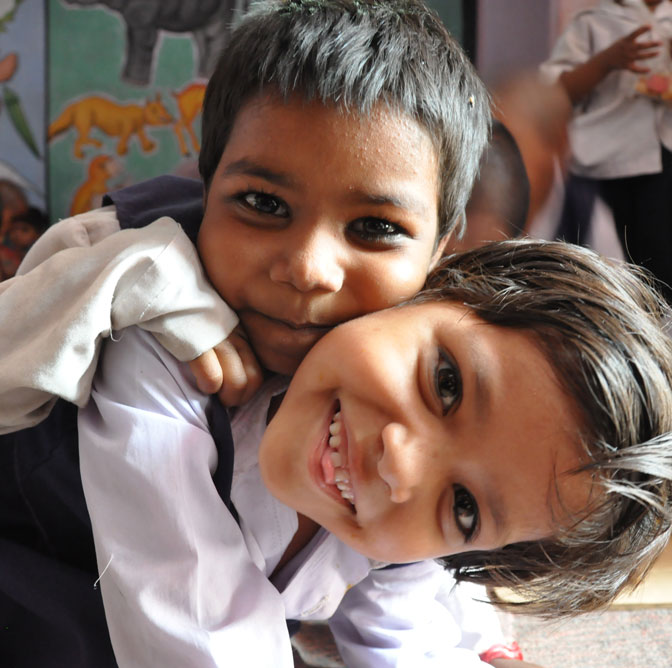Among low income families in Myanmar, first-born children must often leave school early to supplement the household income. With low levels of education and few marketable skills, their employment options are limited and come with little pay – many children in this situation will become domestic helpers, labourers or factory workers. They will sacrifice their childhood to support their family.
Ma Nwe’s mother, Daw Cho, also left school when she was just eight years old. She now works as a labourer – lugging bricks and heavy stones all day. It is backbreaking, exhausting work.
Home for the family is a makeshift hut on a rubbish dump. There is no toilet or electricity, and they are surrounded by garbage. Disease is at their doorstep. And because they do not own the land, the threat of eviction is never far away; the family has already been forced to move many times.
“We are not doing well. We have to struggle for food. We are worried. We feel sad a lot. I wanted my children to be educated,” says Daw Cho.
Khet Khet dreams of becoming a teacher. She wants to help others, gain financial independence, and ease the burden on her family. But she knows this will only be possible if she can complete her education.
“If my mother is not able to work and we have no money, I am worried I won’t be able to go to school. If I cannot go to school, I cannot be a teacher. I will have to be a servant and do what others ask of me,” says Khet Khet.
But for now, Khet Khet is lucky. She lives near a non-state school which provides free lessons to vulnerable children. However, the classrooms at her school are small, loud and overcrowded. Khet Khet’s class is taught at one end of the room, while another teacher instructs a different grade at the other end. It can be hard for students to hear properly and concentrate. And many teachers do not have formal qualifications.
At ChildFund, we believe that every child should be able to say: “I am educated”. So in Myanmar, we are training teachers to deliver quality lessons to young minds, funding school lunches so children do not sit in class hungry, and building more classrooms and improving learning environments.



